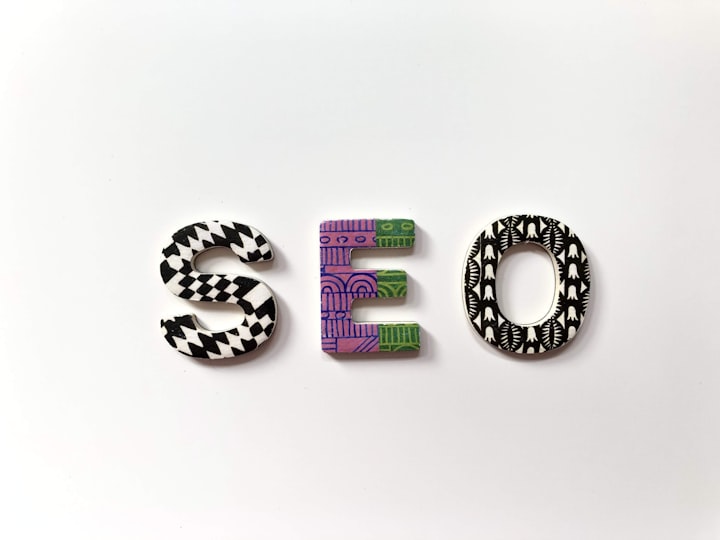What is SEO and how does it work?
what you need to know about SEO
Could it be said that you are toward the beginning of your SEO journey? Perhaps you've heard that Search engine optimization can assist with directing people to your site and get you higher rankings, yet you're not quite certain how it functions or what regions to zero in on. Indeed, you've come to the perfect location. Peruse on to figure out what each advanced advertiser ought to be familiar with in Search engine optimization.
Defining Search Engine Optimization (SEO)
Let’s begin by asking a comprehensible question: what precisely is SEO? Well, SEO stands for ‘Search Engine optimisation, that is that the method of obtaining traffic from free, organic, editorial, or natural search ends up in search engines. It aims to boost your website’s position in search results pages. Keep in mind, the higher the site is recorded, the more individuals will see it.
Great SEO includes a wide range of exercises, for example,
- Identifying significant keywords with great hunt traffic potential
- Making the superior grade, valuable substance and enhancing it for search engines and for users
- Counting pertinent connections from top-notch sites
- Estimating the outcomes
Nowadays, SEO is viewed as a fundamental marketing activity.
Differences between paid and organic search
From the kickoff, it’s vital that you simply perceive the differences between the organic, natural search substitutable with SEO and paid search. They are 5 key differences:
- ROI
As far as the profit from speculation or return for money invested, it's truly a lot easier to live with paid search. That is partially a result of Google providing a lot of keyword knowledge that you simply will capture in Google Analytics. However, with paid search, ROI will stagnate or decline over time. With organic search, ROI could be a bit more durable to live, however, it typically improves over time. Over the future, organic search can give a really sensible come-on investment.
- Share of traffic
Regarding the share of traffic, generally, 20% to 30% of searchers click on paid results, and 70% to 80% of searchers click on SEO results. So the overwhelming majority of snaps are on the organic results.
- Position
The first key difference is that paid search results show up at the highest point of web search tool results pages, and organic results outcomes show up underneath them.
- Time
One more key difference between paid and organic search is time. With paid search, you obtain close-to-moment results, now and then in minutes; while, with organic search, results take additional time - frequently weeks, months, and even years. So you have to play the medium to long-term game with organic search.
- Payment
With regards to paying, indeed, as the name proposes, paid search traffic is paid. You pay-per-click (PPC) on an expense for every snap (CPC) premise. This means you pay an expense each time a client taps on your promotion. So rather than depending on natural traffic to your site, you purchase traffic for your page by paying Google to show your ad when your visitor does a search for your keyword. For organic search, traffic is free, in spite of the fact that it does require an investment of both resources and time.
Similarities between paid and organic search

It's not about contrasts - there are likewise similarities between paid and organic search:
- Keyword research: You utilize a search engine for both paid and organic search, and both require a client to enter a catchphrase. So you really want to do keyword research for the organic search and paid search.
- Landing pages: The two kinds of search expect you to make a landing page. For SEO, the landing page should be connected to your website. For paid search, it tends to be a similar landing page you use for organic, or it very well may be a totally different independent page that sits off your site.
- Traffic: Producing traffic is a significant objective of both paid and organic searches. In particular, both paid and organic search traffic incorporates client aims. That is, someone is asking Google a question or searching for data - they are in a functioning outlook and thus, they are more likely to take action once they find this information.
How do search engines actually work?
Search engines are utilized by individuals when they have an inquiry and are scanning the web for a response. Search engine algorithms calculations are computer programmes programs that search for signs to give searchers the specific outcomes they are searching for. Search engines depend on calculations to find pages and choose which ones to rank for some random catchphrase. There are three moves toward how web search tools work: crawling, which is the discovery stage; indexing, which is the filing stage; and ranking, which is the recovery stage.
- Crawling
The initial step is crawling. Search engine tools convey web crawlers to track down new pages and record data about them. We at times call these web crawlers 'AI' or 'robots'.
- Indexing
The subsequent step is Indexing. Indexing is the point at which a web crawler concludes whether it will utilize the substance that it has crawled.
- Ranking
The third step is actually the main step, and that is Ranking. Ranking can occur after the crawling and indexing steps are complete. So when a web search tool has crawled and indexed your website, your website can be positioned.
There are 200 positioning signs that search engines use to sort and rank substance.
- Keyword presence in the title tag - Whether the catchphrase or an equivalent word was referenced on the page and inside the title tag
- Loading speed of web page - Whether the web page loads quickly and is versatile
- Website reputation - Whether the page and site are considered reputable for the point being looked for.
About the Creator
Daniel Umoh
Loves writing and enjoy dabbling in different genres. He is currently doing freelance work as a writer and ghostwriter for various publications.
As a man thinketh so is he.
One needs to seek Knowledge.







Comments
There are no comments for this story
Be the first to respond and start the conversation.